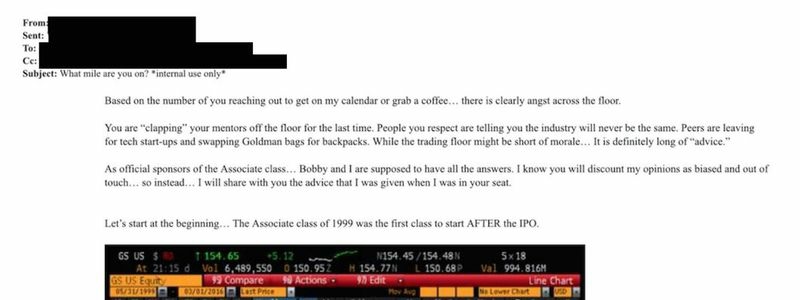GS and Barclays Emails to Staff
/A Goldman Sachs partner wrote an email to junior staff that was intended to be motivational. BusinessInsider writes, "every young person on Wall Street should read it.
Presumably, the impetus was a lot of unhappy people because of the market conditions and several recent employee departures. The email includes big pictures and few words. This is the first screen of it, and here's the rest.
According to BusinessInsider, "We're told that the associates love it and they're passing it around internally."
When Googling to find the email, I came across this Barclays email to interns from last summer. I'm not sure how I missed it, but it's an incredible example of Wall Street culture and communication.
The Washington Post published the email, calling it "the latest cringeworthy Wall Street memo to interns." It included "Ten Commandments" for new interns, such as bringing a spare tie for associates, wearing a bow tie, being the last one to leave at night "no matter what," and bringing a pillow to work for sleeping under the desk. The second commandment sounded overriding: "Remember: this is a summer internship for a full-time offer. It won't be easy. If you can't handle the heat, get out of the kitchen."
The Post received this response from Barclays management:
"This email communication was in no way authorized by Barclays. Barclays is fully committed to creating an environment where both our bankers and our business can thrive. We have implemented policies and training guidelines to enable employees to gain valuable experience while at the same time maintaining a healthy work-life balance."
Discussion Starters:
- Do you agree with BusinessInsider's assessment of the GS email? Why or why not?
- What's your view of the large pictures? Do these help or detract from the written message?
- How do you find the Barclays' "Ten Commandments" email? Does it match with your experience as an intern?
- Discuss what may have happened internally at Barclays after The Washington Post published the email. Should intern managers have leeway in what they communicate to interns, or should their communication be held more tightly?



